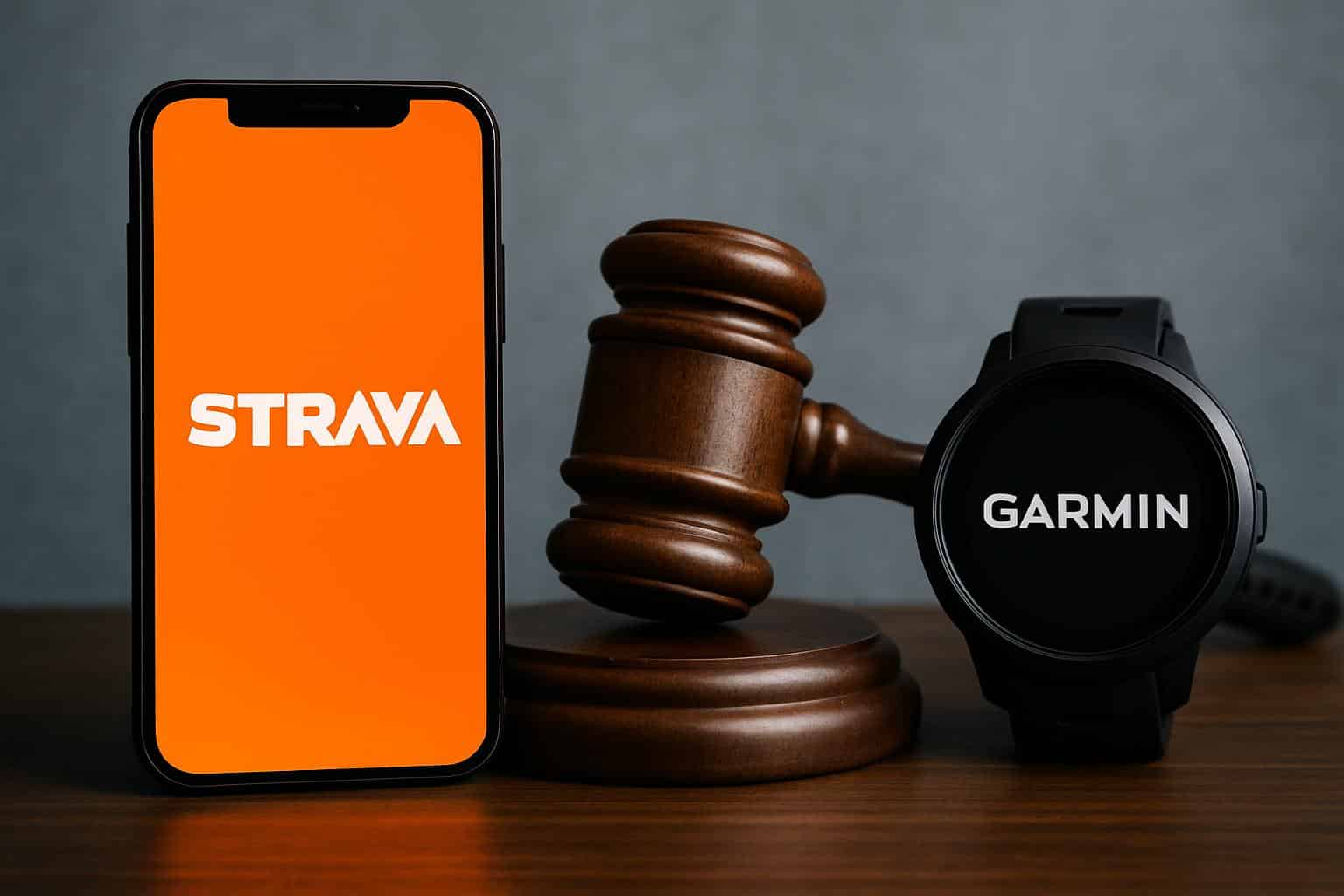The 10 Most Common Errors Amateur Cyclists Make
Discover the most frequent errors that hold cyclists back from reaching their full potential.
Strava files lawsuit against Garmin alleging patent infringements related to segments and heatmap features used on Garmin Connect.

In a notable development impacting the fitness tech community, Strava has launched legal action against Garmin, accusing the device maker of infringing patents related to two key features: segments and heatmaps.
Strava, a popular fitness tracking and social platform for athletes, claims that Garmin's Garmin Connect platform illegally replicates patented functionalities first introduced by Strava years ago.
The lawsuit demands Garmin immediately stop selling, without limitation, most of its devices which use these features, including its widely used fitness watches and bike computers.
Segments are portions of a route that allow athletes to compare times and compete on leaderboards. Strava holds patents dating back to filings from 2011 on segments, which gained widespread adoption in fitness tracking from as early as 2009.
Heatmaps, another feature at the core of this dispute, are not new in general but Strava’s specific patent from 2016 covers how these user preference maps assist in routing by suggesting paths favored by community activity.
Strava introduced personal heatmaps in 2013 and their maze of patents protects how heatmap data influences route recommendations.
Garmin likewise implemented heatmaps and segments into Garmin Connect and its devices, with the former launching its segment features in 2014 and expanding soon after.
Despite the similarity, Garmin historically partnered with Strava integrating Strava Live Segments into its devices starting in 2015 under a cooperation agreement.
.webp)
While both companies maintained a collaborative relationship for years, tensions rose over data use and attribution.
Garmin reportedly objected to Strava using Garmin-sourced data to train AI-generated insights without proper credit.
Strava, in turn, resisted Garmin’s API guideline changes requiring prominent Garmin branding on all data-driven insights, viewing it as inappropriate advertising on users’ own data.
This conflict over data control, branding, and contractual compliance appears central to Strava’s decision to enforce its patents and demand Garmin cease relevant sales.
Furthermore, Garmin's launch of its own Connect+ subscription service may have escalated competitive pressures.
For athletes relying on the synergy of Garmin devices and Strava’s platform, uncertainty now looms.
Strava’s representatives have assured that the lawsuit intends no disruption to Garmin users syncing data with Strava.
However, the threat of API access being cut off could complicate matters if negotiations falter.
This dispute highlights the complexity of software patents in fitness technology and the delicate balance between device manufacturers and service platforms.
Athletes should be aware this legal battle could affect segment functionality, route heatmaps, and data integration between Garmin and Strava.
This lawsuit underscores how intertwined hardware makers and platform providers have become in the fitness ecosystem.
As a former athlete familiar with the importance of reliable and seamless data integration, I recognize how disruptive these types of issues can be to training and competition.
Hopefully, a resolution emerges that respects intellectual property while preserving athlete experience and data ownership.
For now, cyclists and runners should prepare for possible changes but can continue to enjoy the benefits of GPS devices and platforms working together as these companies navigate their legal and business challenges.
Perfect for the new riders!
No spam. Cancel anytime.